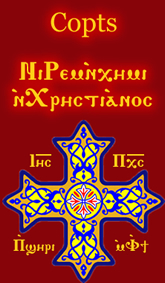
The Evangelical Church in Germany is a federation of twenty Lutheran, Reformed (Calvinist) and United Protestant regional churches and denominations in Germany, which collectively encompasses the vast majority of Protestants in that country. In 2018, the EKD had a membership of 21,141,000 members, or 25.5% of the German population. It constitutes one of the largest national Protestant bodies in the world. Church offices managing the federation are located in Hannover-Herrenhausen, Lower Saxony. Many of its members consider themselves Lutherans.

The Episcopal Church in Jerusalem and the Middle East is a province of the Anglican Communion stretching from Iran in the east to Algeria in the west, and Cyprus in the north to Somalia in the south. It is the largest and the most diverse Anglican province. The church is headed by a President Bishop, currently the Most Reverend Suheil Dawani, who ranks as a representative primate in the Anglican Communion. The Central Synod of the church is its deliberative and legislative organ. The province is divided into four dioceses:
The Confessing Movement is a lay-led conservative Christian movement that opposes the influence of liberalism and progressivism within several mainline Protestant denominations and seeks to return them to its view of orthodox doctrine.
The Church of Pakistan is a united Protestant Church in Pakistan, which is part of the Anglican Communion and a member of the World Communion of Reformed Churches and the World Methodist Council.
The World Alliance of Reformed Churches (WARC) was a fellowship of more than 200 churches with roots in the 16th-century Reformation, and particularly in the theology of John Calvin. Its headquarters was in Geneva, Switzerland. They are now merged into the World Communion of Reformed Churches.
The Christian Conference of Asia is a regional ecumenical organisation representing 15 National Councils and over 100 denominations (churches) in New Zealand, Australia, Bangladesh, Burma, Cambodia, East Timor, Hong Kong, India, Indonesia, Laos, Japan, Korea, Malaysia, Pakistan, Philippines, Sri Lanka, Taiwan and Thailand.
The Anglican Diocese of Jerusalem is the Anglican presence in Israel, the Palestinian territories, Jordan, Syria and Lebanon; it is a part of the Episcopal Church in Jerusalem and the Middle East, and based at St. George's Cathedral, Jerusalem. The diocese covers 7,000 Anglicans, with 35 service institutions, 29 parishes, 1500 employees, 200 hospital beds and 6,000 students. From 1957 to 1976 the ordinary held the rank and title of Archbishop of Jerusalem; the ordinary is now the Bishop in Jerusalem. Today, Anglicans constitute a large portion of Jerusalem's Christians.

The Near East School of Theology (NEST), located in Beirut, Lebanon, is an interdenominational Protestant theological seminary serving Christian churches of the Middle East and North Africa, and also educates international students who have a special interest in Biblical and Islamic studies in a Middle Eastern context or those especially interested in the Ancient churches.

The Evangelical Lutheran Church of Latvia is a Lutheran Protestant church in Latvia. Latvia's Lutheran heritage dates back to the Reformation. Both the Nazi and communist regimes persecuted the church harshly before religious freedom returned to Latvia in 1988. Unlike Estonia, where state atheism and the ongoing European secularization reduced the once 80% Lutheran majority to almost 10% by 2011, the Latvian Lutheran church had dropped to around 20% but has recovered slightly and now includes approximately 30% of the population.

The Evangelical Church of Egypt is a Protestant church that started as a mission of the United Presbyterian Church of North America among Coptic Egyptians in the late nineteenth century. The Evangelical Church of Egypt became autonomous in 1957 and officially independent in 1958. It has eight presbyteries, 314 congregations, and about 250,000 members.

The World Communion of Reformed Churches (WCRC) is the largest association of Reformed churches in the world. It has 233 member denominations in 110 countries, together claiming 100 million people, thus being the third largest Christian communion in the world after the Roman Catholic Church and the Eastern Orthodox Church. This ecumenical Christian body was formed in June 2010 by the union of the World Alliance of Reformed Churches (WARC) and the Reformed Ecumenical Council (REC).
Protestants in India are a minority in a predominantly Hindu country, but form majorities in the north-eastern states of Meghalaya, Mizoram, Nagaland and sizeable minorities in Kerala, Tamil Nadu and various east coast and northern states. Protestants today trace their heritage back through a rich history of Christian and monotheistic faith on the Indian subcontinent.

Christianity is a minority religion in Sri Lanka. Christianity was introduced to the island in first century, probably in AD 72. Traditionally, after Thomas the Apostle's visit in Kerala in AD 52, Christianity is said to have been introduced via India because of its close geographical and commercial ties. According to Christian traditions, the apostle Thomas preached the Gospel in Sri Lanka. Records suggest that St. Thomas Christians and Nestorian Christians lived in Sri Lanka. Anuradhapura cross is one of the archaeological claims that suggest Christianity in Sri Lanka before Portuguese. Roman Catholicism was introduced by the Portuguese in 1505. There were conversions by Dutch persons in the 17th century, which resulted in a percentage of church members in excess of 10%.

The Anglican Church in North America (ACNA) is a Christian denomination in the Anglican tradition in the United States and Canada. It also includes ten congregations in Mexico, two mission churches in Guatemala, and a missionary diocese in Cuba. Headquartered in Ambridge, Pennsylvania, the church reported 30 dioceses and 1,037 congregations serving an estimated membership of 134,593 in 2017. The first archbishop of the ACNA was Robert Duncan, who was succeeded by Foley Beach in 2014.
The Community of Protestant Churches in Europe is a fellowship of over 100 Protestant churches which have signed the Leuenberg Agreement. Together they strive for realizing church fellowship, especially by cooperation in witness and service to the world. Prior to 2003 the CPCE was known as the "Leuenberg Church Fellowship".
The Evangelical Lutheran Church in Jordan and the Holy Land (ELCJHL) is a Lutheran denomination that has congregations in Jordan and State of Palestine. First recognized as an autonomous religious community by King Hussein in 1959, the church currently has 3,000 members in six congregations.

















